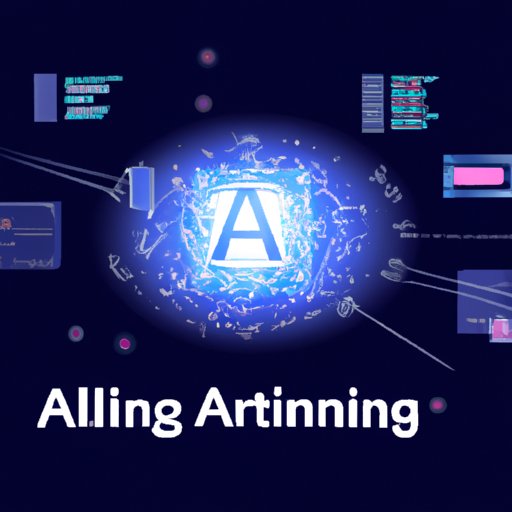Introduction
As artificial intelligence (AI) continues to transform industries, the demand for experienced AI engineers is growing rapidly. Becoming an AI engineer requires a mix of technical skills and knowledge, as well as experience in the field. This article will provide an overview of the steps necessary for aspiring AI engineers to become successful professionals.
Research the Basics of AI Engineering
Before taking the plunge into a career as an AI engineer, it’s important to understand the roles and technologies associated with this profession. AI engineers are responsible for developing and maintaining AI systems, which involve data analysis, machine learning, and other forms of automation. They must also be familiar with coding languages such as Python, Java, and C++, as well as frameworks such as TensorFlow and PyTorch.
In addition to technical knowledge, AI engineers must have strong problem-solving and communication skills. According to a study by the World Economic Forum, “soft skills” such as creativity, critical thinking, and collaboration will be essential for AI engineers in the future.

Pursue a Degree in Computer Science
Although not always necessary, having a degree in computer science or a related field can be beneficial for aspiring AI engineers. A degree can help demonstrate your competency in the field and give you a competitive edge over other applicants.
The type of degree you pursue will depend on your goals and interests. For example, if you’re interested in developing machine learning algorithms, you may want to pursue a master’s degree in computer science or engineering. On the other hand, if you’re more interested in natural language processing, a bachelor’s degree in linguistics may be more appropriate.
Gain Experience
Once you’ve acquired the necessary educational background, the next step is to gain experience in the field. Internships and apprenticeships are great ways to gain hands-on experience while learning from experienced professionals. You can also look for entry-level positions at technology companies or startups, where you’ll be able to apply your knowledge in a real-world setting.
It’s also important to stay up-to-date on the latest developments in AI engineering. Following AI news outlets and attending conferences and seminars can help keep you informed of the latest trends and technologies.
Develop Your Skills
Successful AI engineers must possess a variety of technical skills, such as machine learning, natural language processing, and computer vision. It’s important to develop and hone these skills through practical experience and training.
For example, if you’re interested in developing machine learning algorithms, you can take online courses or attend workshops to learn the basics. You can then apply what you’ve learned by building projects and experimenting with different techniques.
Network
Networking is an important part of becoming an AI engineer. Building relationships with other AI engineers can help you stay up-to-date on developments in the field, as well as open doors to new opportunities.
You can network with other AI engineers by attending industry events, joining professional organizations, and connecting with other professionals on social media platforms such as LinkedIn. By establishing contacts in the industry, you’ll be better positioned to land a job or find new opportunities.
Conclusion
Becoming an AI engineer requires a combination of technical knowledge, experience, and networking. Aspiring AI engineers should research the basics of AI engineering, pursue a degree in computer science or a related field, gain experience through internships and apprenticeships, develop their skills through training and practice, and build relationships with other professionals in the field.
(Note: Is this article not meeting your expectations? Do you have knowledge or insights to share? Unlock new opportunities and expand your reach by joining our authors team. Click Registration to join us and share your expertise with our readers.)
